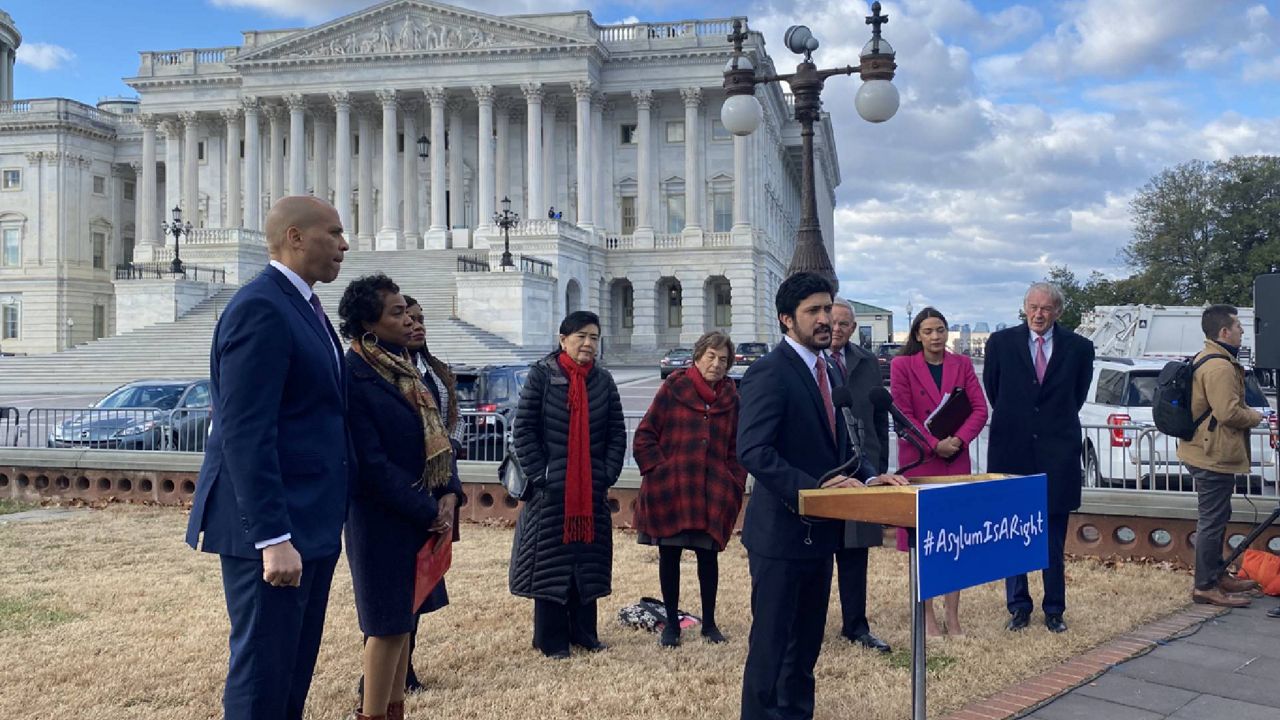WASHINGTON, D.C. — Democrats and faith-based immigration groups publicly condemned this week recent Biden administration changes to the asylum system, including plans to bring back a Trump-era restriction that could block protection claims at the U.S. border if migrants don’t first try in another eligible country.
In a letter sent to the White House, more than 70 Democratic lawmakers called on President Joe Biden to “stand by your commitment to restore and protect the rights of asylum seekers and refugees,” referring to Biden’s promise to restore the system after former president Donald Trump’s restrictive policies.
New limits introduced by the Biden administration this month have already reduced the number of encounters at the border, according to the Department of Homeland Security, specifically among Venezuelans, Haitians, Cubans and Nicaraguans.
Biden implemented an expansion of Title 42 for those populations in early January that allowed them to be immediately expelled back to Mexico even with an asylum claim, something previously difficult because of issues with deportations to those four countries. Title 42 was first put in place by Trump in 2020.
People from Venezuela, Haiti, Cuba or Nicaragua who try to cross the border also face the threat of exclusion from a new, limited sponsor program that allows 30,000 people to enter the U.S. per month.
So far, numbers from January show that encounters of Cubans, Haitians, Nicaraguans, and Venezuelans crossing between ports of entry dropped by 97% compared to December, according to DHS. Encounters dropped from a seven-day average of 3,367 per day last month to an average of 115 on January 24.
The Justice Department and DHS plan to narrow asylum eligibility even further, DHS Secretary Alejandro Mayorkas warned, by proposing a rule to block people from claiming asylum if they “failed to seek protection in a country through which they traveled on their way to the United States,” with limited exceptions.
Democrats and immigration advocates this week rejected that proposal, calling it a “transit ban” comparable to a similar policy under former president Donald Trump that was blocked in federal court. The Biden administration version of the rule has not yet been proposed.
People qualify for asylum – a legal immigration pathway – if they have credible fear of persecution in their home country because of their race, religion, political opinion or membership in a certain social group.
“The right to seek asylum is enshrined in both international and domestic law,” said Sen. Bob Menendez, D-N.J., the son of Cuban immigrants, on Thursday. “These laws were passed by Congress after our immigration systems shamefully failed to protect Jewish refugees fleeing Nazi persecution.”
Earlier this week, the president of HIAS, a Jewish humanitarian group, told a similar story – how the U.S. turned back ships of people from Europe seeking refuge, leading hundreds to later die in the Holocaust.
“Unlike back then, the U.S. now has asylum laws, but the Biden transit ban will literally place those laws out of reach,” said Mark Hetfield, president of HIAS. “This is illegal and this is immoral.”
This week, 165 faith groups and congregations wrote a letter to President Biden, calling on him not to implement the transit ban, citing broad support from their congregations and a duty they feel that is derived from religious texts and principles.
They also write that it is “inconsistent with refugee law” around the world.
Biden and Mayorkas announced the new restrictions earlier this month as encounters at the U.S.-Mexico border reached record highs – totaling 2.76 million in fiscal year 2022 alone. The largest increase in recent months has been people from Venezuela, Cuba, Nicaragua and Haiti.
Since the changes earlier this month, January is “on track to see the lowest levels of monthly border encounters since February 2021,” according to DHS.
“These expanded border enforcement measures are working,” said Mayorkas in a statement.
Rep. Greg Casar, D-Texas, on Thursday told Spectrum News he blamed far-right Republican rhetoric and misinformation about the border for the changes to asylum.
“[They] don't actually want to solve this challenge. And so we need to make sure that the American people hear and understand that the president, alongside congressional Democrats, want to solve this challenge,” he said, noting that any solution must incude an accessible asylum system.
Immigration advocates have also voiced concern this week about how a new mobile app system to schedule asylum claims at ports of entry is also restricting access.
In its first week of use, migrants told Spectrum News they encountered constant errors within the CBP One preventing them from booking an appointment. Others are frustrated they had been waiting for weeks in Mexico for their turn to make a claim when the app was suddenly introduced, putting them at the back of the line once again.
Spectrum News has reached out to the Department of Homeland Security for comment.
